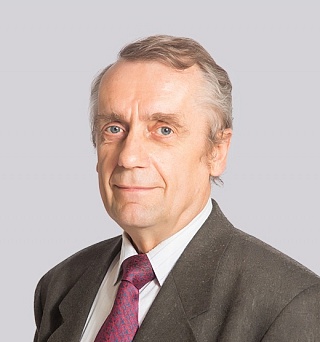Anti-monopoly Service tackles health concerns
27 January 2016The best-known involvement of the Anti-monopoly Service in IP rights is its ardent but unsuccessful support of the liberalisation of parallel imports. However, it is now targeting another issue, brushing parallel imports aside.
Article 13 of the Law on the Circulation of Drugs requires that all medicinal preparations to be used in Russia be registered. A drug may be registered only following expert consideration, which includes examination of a package of documents and clinical trials. Only drugs brought by physical persons from abroad for their personal use are exempt from registration. Clinical trials involve a lengthy procedure, often lasting for years. A patent extension may be obtained, but innovative drug producers wish to market their medicines as soon as possible. In light of these requirements, Head of the Anti-monopoly Service Mr Artemiev sent a letter to Russian Premier Dmitry Medvedev with an innovative idea: he proposed to cancel clinical trials for imported drugs registered in Europe and the United States. At present, the proposal is being examined by the Ministry of Health. The letter observes that while clinical trials are ongoing thousands of people may die. In theory, Russia can recognise foreign clinical trials, but only based on the principle of reciprocity. It must be acknowledged that Russia offers few innovative drugs to the world, so Article 13 has not been used since its adoption in 2010. Thus, the proposal seeks to mollify the legal requirements. It states that a drug cannot be registered in Russia without lengthy clinical trials even if that drug has undergone clinical trials at the US Food and Drugs Administration or the European Medicines Agency. Those agencies have excellent reputations and their findings need no confirmation of safety and quality. Artemiev added that the fact that the requirement of additional trials violates the principle of equality of economic entities justifies the service's concern about health problems.
If the government gives the green light to the unrestricted import of innovative medicines into Russia, pharmaceutical companies will actively support this liberalisation. Clinical trials in the drug's country of origin may cost more than $1 billion. Confirmatory trials in Russia would range from $5 million to 50 million – an unnecessary waste of money for pharmaceutical companies. There are also other unfavourable implications. A local investigation involves a smaller number of patients, which enhances the risk of statistical error and could result in a reliable, proven drug being compromised by the trials. Another issue caused by local trials is that local experts who test innovative drugs may not have sufficient experience and competence with regard to specific innovative drugs. Further, repeated tests do not add to scientific knowledge about the product.
The Russian pharmaceutical market is growing: experts value it at billions of dollars and it grew 12% in 2015. At the same time, prices rose by nearly 23%. Much of the price of the final drug sold to patients includes compensation for clinical trials. Hence, waiving local clinical trials would benefit not only the pharmaceutical companies, but also consumers of medicines. Finally, liberalisation of the import of previously tested drugs could save thousands of lives, which would be the most important result of the Anti-monopoly Service's initiative.










